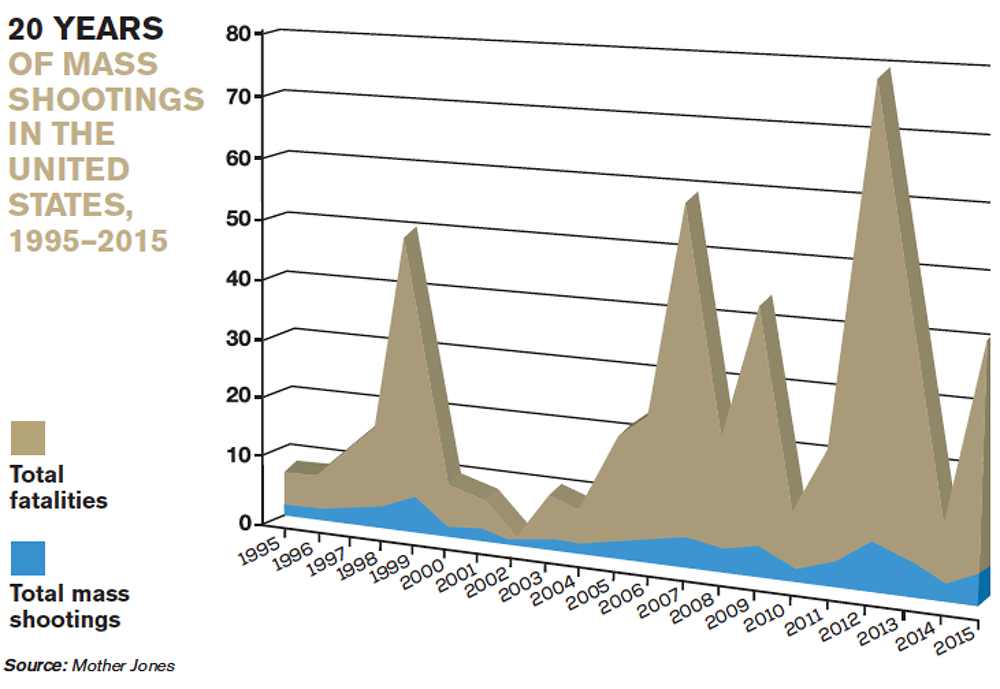
RP: I think as ER docs, we’re pretty calloused. If you see terrible things on a daily basis, you’re really able to build up walls and deflect a lot of the stuff you see on a daily basis. You have someone who comes in, and they’ve been shot or stabbed. There’s always a degree of culpability with these patients, whether that’s imagined or true. You’ll find out that they’d probably not been doing the right thing at the right time, and so for me, that’s a coping mechanism. In this case, that just fell right on its face. These were just innocent kids who were assassinated, and that took a huge emotional toll on the physicians. It really hurt.
Explore This Issue
ACEP Now: Vol 35 – No 01 – January 2016KK: In a 30-minute time frame that day, tell me about the gamut of injuries you saw, both for the patients who survived and those who did not.
RP: The first patient was a gunshot wound to the head. She was in asystole and was receiving CPR when she came through the door. You’re in triage mode at that point because you’re not sure what else is coming in. We took her pulse quickly, and she obviously had injuries that were not survivable. I moved from that team to the next room. That was a gunshot wound to the thigh; it was a superficial through and through. She was an 18-year-old whose mother actually was working in the hospital. The next two were both gunshot wounds to the hand, and I was able to pass those off to additional ER docs that came in.
KK: We all hear about these events, but we may feel insulated from them. That’s someone else’s community. How surprised were you that this was happening in your community?
RP: It’s really mind-blowing. I think President Obama talked about how we’ve become numb to this. You hear about all these tragedies around the country, and you really do become numb. You’re subjected to it constantly, but you always feel like that’s not going to happen here in this small, isolated, beautiful wilderness community. Everyone here was really shocked.

For this chart, a mass shooting is defined as an attack in a public place with four or more people killed. Mass murders in private homes related to domestic violence and shootings tied to gang or other criminal activity are excluded.
KK: When you have an event like this, we would like to believe this is just a day in the life of an emergency physician, but how has this changed you?
Pages: 1 2 3 4 5 | Single Page



One Response to “Emergency Physician Recounts Caring for Oregon Mass Shooting Victims”
January 24, 2016
AliciaDr. Peterson,
Thank you for taking the time to share your experience. What a difficult experience, one I hope I never share with you. Emergency staffers are unique birds in their ability to cope. Your sharing shows that these types of circumstances take more than lives. I’d like to express gratitude to you and your ER staff for their work and service. While we (ER staff) all know that we could be faced with a disaster at any moment I take for granted that even my toughest shifts were mild in comparison to your experience. Peace to you and your staff!
ER Doctor in Flint, Michigan